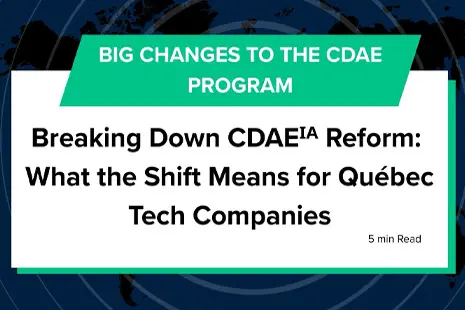Prospects for businesses to grow net profits have hit a 10-quarter high, according to a Q3 2024 survey from Grant Thornton, with 79 percent of CFOs expecting to grow their profits over the next 12 months.
But overall CFO confidence has sunk to a four-quarter low, as only 51 percent of respondents were confident in their ability to “meet goals for increased demand” going into 2025.
Breaking down this last metric, only roughly 53 percent of CFOs polled felt they could meet their supply chain objectives over the next year, while less than half believe that they’ll meet labor demands as talent shortages continue to plague financial teams across industries.
The top priority—and biggest driver of CFO confidence—for respondents in Q3 was cost optimization. That means “trimming fat” from budgets, consolidating tools and services, and prioritizing solutions that can help teams be more productive without stretching their human resources too thin.
That isn’t to say that CFOs won’t be making investments to hit their profit targets and tackle their biggest stressors for 2025.
In fact, 56 percent of CFOs polled expect to increase their investments into sales and marketing over the next 12 months—the highest percentage of go-to-market investment tracked in 15 months. Similarly, IT spend is expected to go up in 2025 among 66 percent of CFO respondents in Grant Thornton’s survey.
To counter these investments and maintain that focus on cost optimization, however, 42 percent of those polled expect contractions in both employee headcount and in compensation.
Mass layoffs, however, aren’t immediately anticipated, as only 27 percent of CFOs polled have “workforce rationalization” as a priority for the next year—a 20-point drop from polling conducted in Q2.
In total, only 14 percent of CFOs indicated that they have no plans to cut costs whatsoever. While that’s an all-time high for the Grant Thornton survey—which was only launched last year—there are other short-term factors that could push finance leaders to change course.
Elections causing global CFO uncertainty
It may not be surprising but with elections in the United States less than a month away, CFOs are keeping their best-laid-plans flexible in order to tactically respond to some of the immediate outcomes.
Of those surveyed, 61 percent of CFOs anticipate the election outcome may force a shift in their business strategy. For 45 percent of finance leaders, the impact of November’s election outcome on the overall economy was the top factor they expect will force a strategy pivot, but factors including tax policy (23 percent) and regulatory policy (22 percent) were being tracked as key factors that will impact 2025 planning.
“CFOs believe they can push the right buttons to help their organizations thrive in the long term,” said Paul Melville, national managing principal of CFO Advisory for Grant Thornton Advisors. “Finance leaders’ belief in their ability to drive profits at their organizations remains unshaken, even as their confidence in other key fundamentals tumbled in an unsettled environment.”
Actionable data systems to drive productivity
One way that CFOs have indicated they can navigate an uncertain short-term is to leverage more actionable data systems to ensure growth.
This aligns with the intent to up investments into IT and tech while scaling back on bringing in more headcount to ensure both cost optimization and better growth prospects.
In finance in particular, tools and solutions that can better align, present and qualify key data for actionable insights will be critical to ensuring that teams can maximize their operations across the organization while uncovering ares for optimization—and even future investment.
At Boast, our team leverages an AI-driven platform to align the key workflow, payroll and financial data necessary to not just identify activities that could unlock government funding, but opportunities for optimization across product development and R&D teams. The benefits are twofold (at least), as teams can find more opportunities for non-equity funding to diversify their capital strategy, while deriving organizational insights that can unlock significant process optimizations.
To learn more about how Boast can help you drive more innovation (and liquidity), talk to one of our experts today.
CFO Confidence FAQ
- What are the current trends in CFO expectations for business growth? According to a Q3 2024 survey by Grant Thornton, 79% of CFOs expect to grow their profits over the next 12 months, reaching a 10-quarter high. However, overall CFO confidence has dropped to a four-quarter low, with only 51% feeling confident in their ability to meet increased demand goals for 2025.
- What are the main areas of concern for CFOs going into 2025? CFOs are particularly concerned about meeting supply chain objectives (only 53% feel confident) and labor demands (less than 50% feel confident). Cost optimization has become the top priority and biggest driver of CFO confidence.
- How are CFOs planning to balance investments and cost-cutting measures? 56% of CFOs expect to increase investments in sales and marketing, and 66% plan to increase IT spending. To balance this, 42% anticipate reductions in both employee headcount and compensation. However, mass layoffs aren’t immediately expected, with only 27% prioritizing “workforce rationalization” for the next year.
- How is the upcoming U.S. election affecting CFO planning? 61% of CFOs anticipate that the election outcome may force a shift in their business strategy. The top factors they’re monitoring are the election’s impact on the overall economy (45%), tax policy (23%), and regulatory policy (22%).
- What strategies are CFOs considering to navigate economic uncertainty? CFOs are looking to leverage more actionable data systems to ensure growth while optimizing costs. This aligns with plans to increase IT investments while scaling back on new hires. Tools that can better align, present, and qualify key data for actionable insights are seen as critical for maximizing operations and uncovering areas for optimization and investment.


